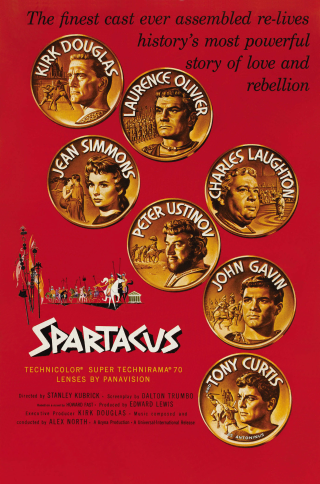And then the January 19, 1960, edition off the New York Times was published, proclaiming on the cover that Trumbo would be credited as the screenwriter of Otto Preminger’s upcoming production Exodus. Hollywood was dipping its toes in the tides of the blacklists. Would there be a crackdown in response? If not, would that mean McCarthyism was over? Would audiences boycott the film, or celebrate it? Upon Spartacus’s release, theaters across the country displayed a giant middle finger to the anti-communist repression of the era. Audiences flocked to see a movie whose title screen displayed the names of two convicted Communist subversives, Howard Fast and Dalton Trumbo.
Pickets ensued, but they were relatively reserved. A group called the Catholic War Veterans were the most vocal. (They had been, however, in full support of the English film that came out earlier that year called Conspiracy of Hearts, about Catholic nuns protecting Jewish children from Nazis. The screenplay was credited to Robert Presnell Jr, but was actually written by Dalton Trumbo.)
The blacklists were, for all intents and purposes, broken. In 1960, Kennedy was elected president, and shortly thereafter, he made a trip to a movie theater with his brother. With a number of films they could’ve seen, the Catholic brothers chose no other than Spartacus, crossing the Catholic War Veterans picket to deal a final death blow to the blacklists. When Kennedy exited the theater and was asked what he thought of the film, he responded simply: it was a good film.
“The terrible penalty of crucifixion has been set aside on the single condition that you identify the body or the living person of the slave called Spartacus,” a Roman soldier yells out in a famous concluding scene of Spartacus. Kirk Douglas rises, but is followed in unison with his two neighbors who yell “I’m Spartacus,” as a thousand other slaves rise behind them. Spartacus became a pseudonym for resistance, for liberty.
The story of Spartacus is also the story of the story of Spartacus. Howard Fast and Dalton Trumbo were two of the thousands of Communists in the United States who struggled to survive through the Red Scare. It was a time when, as Trumbo put it, “devils persuad[ed] us that freedom is best defended by surrendering it altogether.”
